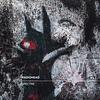Take a photo of a barcode or cover
An earlier reviewer called the book “relentless”. I’ll second that but must also regretfully add “monotonous”. Unfortunately spellbinding quantities of anger don’t necessarily make for good reading. While the research is top-notch, the overall narrative gets boring with listing after listing after listing of individual case studies. I’d recommend Anne Applebaum’s “Gulag” for a tighter read. Regretful review for a book I was so excited to read :-/
One of the most intensely human books I have read in a long time - which is the exact opposite of what I had expected. Why? Because this is a treatise cataloguing a crushing system of tyranny and brutality. It painstakingly details systematic DEhumanization... AND YET what the book is really about are the zeks within the system and their ability to find spiritual strength and dignity in the abyss. In the utter ABYSS.
Richly illustrated, brilliantly written. It is a full, captivating, meticulously researched memoir. This is the very best art.
Also, this was only volume one of three and it got wildly good at the end.
I'm not stopping.
Richly illustrated, brilliantly written. It is a full, captivating, meticulously researched memoir. This is the very best art.
Also, this was only volume one of three and it got wildly good at the end.
I'm not stopping.
challenging
dark
informative
reflective
slow-paced
adventurous
challenging
dark
emotional
informative
reflective
sad
tense
slow-paced
Overview:
The Soviet Russian authorities were brutal persecutors of their people. Those who fall into the gaze of the authority, are persecuted. None are spared. The arrested innocent cannot do anything except remain silent. Not even a pregnant woman’s life was spared when found to have committed criminal behavior. Even religious sites were plundered to hasten cultural change. When political plans conflicted with each other, any type of behavior, or work effort did not meet expectations, they quickly discovered people to blame. People were shot dead when they did not have enough faith in socialist physical structures, for the authorities refused to consider that enthusiasm of the personal was not enough. Persecuting people to destroy their power.
Fear and betrayal were ubiquitous. Death or the Gulag are the outcomes of anyone who the authorities choose as their enemy. As problems kept arising, they kept expanding the people who were to be blamed for the problems. The authorities were trained, to persecute and torture defenseless victims. The persecutors were not some fictitious evil people who know that they are evil. In reality, these people believe they were doing good. Justified in their actions by ideology that makes their acts appear beyond reproach. Terrible acts that are rewarded, supported by the silence of their opponents. Silence perpetuates evil, as people learn that the terrible acts are not going to be punished.
More Details On Persecutions:
Interrogators were able to game the system that they supported. Interrogators tortured people during the night, because they would be paid more. They even claimed more torture hours than they actually did. Confessors were rewarded with cigarettes.
The persecutions were happening during wars. During wars, the Red Army was not allowed to surrender. The soldier was meant to die, while those who asked them to die keep living. Should the soldier come back alive, no matter their state, they will be convicted. The only legal option for the soldier was to die.
There was a famine, in which people would think only about getting more food, no matter the source. Willing to have just a little bit of food, even if it meant death shortly after.
Truth and history are being forgotten. Overridden with lies repeated by public announcements. War and the Gulag dispel any joy of telling stories. No longer wanting to remember the stories, to not think about the trauma associated with the times.
History Of The Book:
The Gulag Archipelago was a famous and infamous book. It was the first and last book about the Gulag to be published by official Russian authorities. Popularity of the book rose, with its official ban. The book gained international fame after the author was expelled from the USSR.
Unlike other books which hide the repressions, Solzhenitsyn’s books directly relate the ways that the people have been repressed. This book represents the 1st attempt to put together the history of Gulag, using various sources. Even autobiographical details of the Gulag.
Caveats?
The book can be very difficult to read. Topics change quickly, and with poor transitions. Organized around various examples, without much systematic analysis.
The experiences during this era were traumatic. The author does not avoid or find ways to dampen the traumatic experiences. The reader needs to come emotionally prepared to handle the experiences.
There is a history of the USSR erasing and manipulating data, making this book a valuable source of information. This book brings with it a diverse set of sources, but not many official reports because they could not be accessed or were destroyed. Sources include law, history, interviews, and an autobiographical account.
challenging
dark
informative
reflective
sad
tense
slow-paced
challenging
dark
informative
medium-paced
In so many ways we are slipping into this. Once people begin re-defining the meaning of words it becomes difficult to pinpoint actual error everywhere. It’s happening in churches, relationships, politics - everything.
challenging
dark
emotional
informative
inspiring
reflective
sad
tense
slow-paced
Essential. Nietzsche's eternal recurrence: Russia 1917 - 1989 Unites States 2016 - TBD.
emotional
reflective
slow-paced
challenging
dark
emotional
reflective
sad
medium-paced





